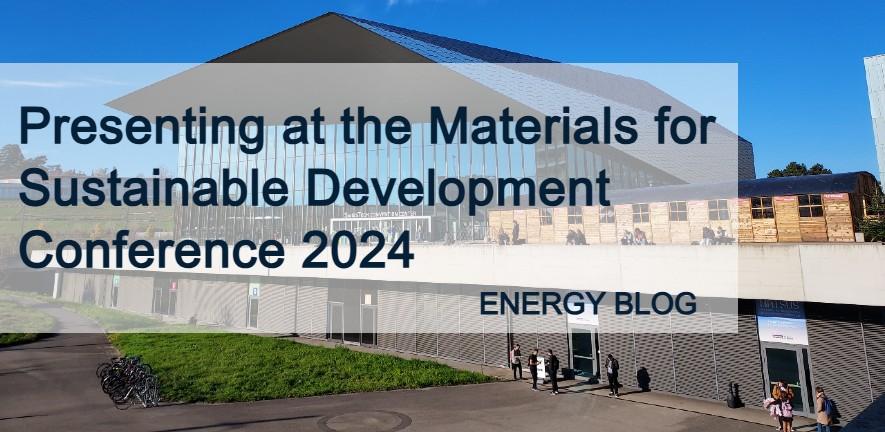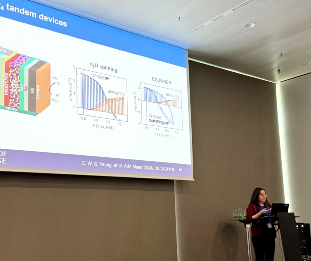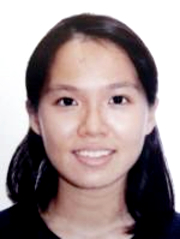
Late last year, the Materials for Sustainable Development Conference (MATSUS Fall 24) was held in École Polytechnique Fédérale de Lausanne (EPFL) at the SwissTech Convention Center. It often takes place twice a year in Spain, so this edition was extra special. The Swiss Tech Convention Centre is home to 300 m2 of dye sensitized solar cells integrated seamlessly into the building’s facade, the world’s first since its construction in 2014.
The conference went deep into the various aspects of materials science, chemistry and engineering, for a range of sustainable energy applications including solar fuels, solar cells, quantum dots, batteries, electrocatalysis and plasmonics. Beyond wet-lab work, it also covered computational and theoretical approaches that help us understand what happens at the materials interface, as well as accelerated materials discovery through automation. To me, it was like the scientific version of a Taylor Swift concert – it felt surreal to be able to listen to some professors speak live about their interesting work on stage (including Professor Reisner!), after following their papers for a while.
There I also presented my first PhD work in the Reisner Laboratory, focusing on photoelectrochemical devices with organic semiconductors for solar fuels applications. Our work overcomes the main bottlenecks in the field, extending beyond H2 evolution to drive CO2 reduction at neutral pH conditions (link to article below). It was also nice to hear from other PhD students on their latest success and failures in the lab (especially when it comes to making robust and stable devices in the #PhotoDeg symposium!), make new friends and cheer each other on this long PhD journey.
I can say I missed Cambridge over those few days! Student canteens were only open till ~ 5 pm unlike our college Servery, leaving us running to the nearest convenience store on campus to get our much-needed food. Thanks to the Winton-Kavli Programme and NanoDTC for all the support and making my dream to visit Switzerland come true!
Read the research paper: Organic Semiconductor-BiVO4 Tandem Devices for Solar-Driven H2O and CO2 Splitting, Celine Wing See Yeung, Virgil Andrei, Tack Ho Lee, James Robert Durrant and Erwin Reisner. Advanced Materials (2024)
Stay tuned for more exciting work with organic semiconductors: Semi-artificial leaf interfacing organic semiconductors and enzymes for solar fuel synthesis, Celine Wing See Yeung, Yongpeng Liu, Samuel Cobb, Virgil Andrei, Ana Coito, Rita Manuel, Ines Pereira and Erwin Reisner, ChemRxiv (2024)
|
|
Celine Yeung Wing See is 4th year PhD student at the Yusuf Hamied Department of Chemistry, University of Cambridge. Celine graduated from National University of Singapore with a B.Eng in Chemical Engineering in 2020. Her research focus is on solar energy and devices. |



